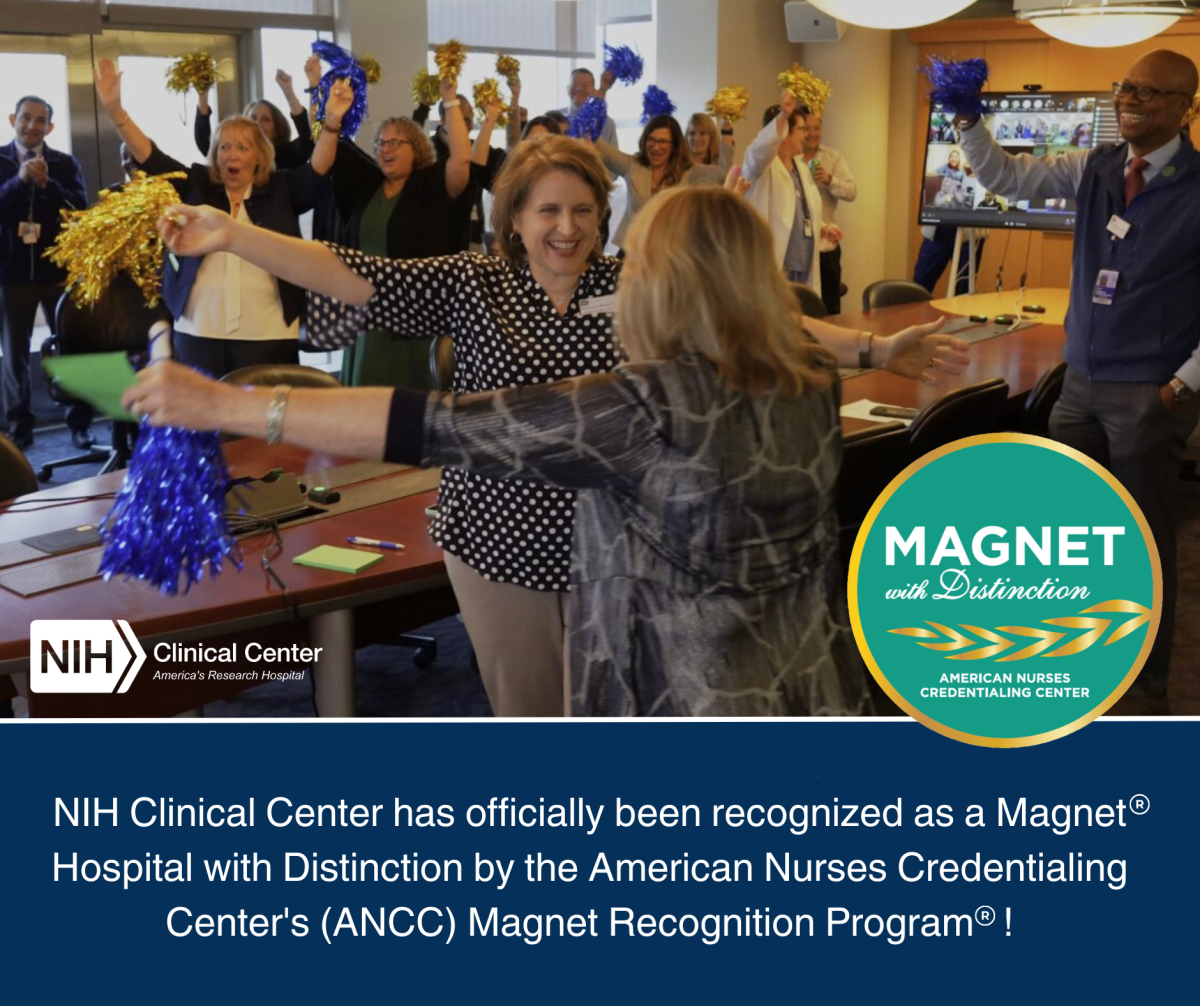Announcements: Kudos
Two NIHers Receive Norman P. Salzman Memorial Awards
Congratulations to the two NIHers who have been recognized with Norman P. Salzman Memorial Awards for Basic and Clinical Virology. The awards recognize outstanding research at NIH, FDA, Fort Detrick Laboratories, Leidos, the U.S. Department of Agriculture, and the Uniformed Services University of the Health Sciences.

Nagela Ghabdan Zanluqui, at NINDS’s Viral Immunology and Intravital Imaging Section, was named the post-doctoral awardee. With her mentor, Dorian McGavern, Zanluqui's research led to the discovery of the rostral-rhinal venolymphatic hub, a previously unappreciated lymphoid structure surrounding vascular networks in the dura mater. Zanluqui demonstrated that this structure can support specific immune responses and generate antibodies against viruses that invade nerve tissue. The observation showed that the central nervous system has organized lymphoid structures and can defend itself along its borders.

Walker Symonds-Orr, at NIAID’s Laboratory of Viral Diseases, was named the post-baccalaureate awardee. During his post-baccalaureate fellowship in the lab of Patrick Dolan, Symonds-Orr investigated the tolerance of enterovirus A71, a common cause of hand, foot, and mouth disease, to genomic alterations. The researchers focused on how DNA mutations shaped the diversification of such viruses. They found that sites tolerant to genetic insertions and deletions, known as indels, are concentrated in the capsid region and relatively stable throughout the diversification process. The finding indicates that there is limited genetic real estate available for diversification through indels. In addition, they used high-throughput insertion screening to develop a method for labeling viral proteins and investigate how those proteins function in the context of infection.
Learn more about the recipients here.
Michael Tartakovsky Named in 2024 Meritorious Presidential Rank Awards

Congratulations to Michael Tartakovsky, chief information officer and director, Office of Cyber Infrastructure and Computational Biology at NIAID, for being named among the 2024 Meritorious Presidential Rank Award Recipients.
Tartakovsky is recognized for his innovative leadership in advancing NIAID's cyber infrastructure and pioneering initiatives like the NIH 3D-print Exchange, which have had a lasting impact on global health research.
The Presidential Rank Awards are the highest honor the federal government can bestow upon career civilian employees. President Biden selected 236 winners from 30 federal agencies. Tartakovsky is among the career Senior Executive Service employees selected by the President for their exceptional leadership, accomplishments, and service over an extended period.
NIH Clinical Center Officially Recognized as a Magnet Hospital with Distinction

Congratulations to the NIH Clinical Center for earning a Magnet with Distinction recognition from the American Nurses Credentialing Center's Magnet Recognition Program. This honor highlights the NIH commitment to nursing excellence, collaborative practice, and exceptional patient care.
Only about 10% of United States hospitals achieve Magnet recognition, and less than 1% of those hospitals earn the prestigious Magnet with Distinction designation.
"This recognition reflects the dedication and expertise of our entire NIH Clinical Center team and underscores our unwavering commitment to excellence in patient care," said Barbara Jordan, chief nurse officer at the Clinical Center.
Achieving Magnet status is a rigorous process involving a comprehensive evaluation of our patient care practices, an on-site visit, and a thorough review. The distinction adds the NIH Clinical Center to a global community of Magnet hospitals.
Parinaz Fathi Selected for the 2025 Forbes 30 Under 30 North America List

Congratulations to NIBIB’s Parinaz Fathi who was selected for the 2025 Forbes 30 Under 30 North America List. The annual list highlights young scientists, engineers, and entrepreneurs who are making discoveries and inventing new solutions.
According to Forbes, Fathi was recognized for developing Vital Injury Protein Evaluation for Recovery, or VIPER, a powerful tool that can predict survival in patients by identifying critical biomarkers linked to traumatic injuries. Fathi is now building tools to understand why the immune system sometimes attacks healthy tissues or ignores cancer cells, a crucial step in developing therapies for these conditions.
Fathi has been leading the NIBIB Unit for NanoEngineering and MicroPhysiological Systems as an Independent Research Scholar since July 2022. She completed her postdoctoral training in Kaitlyn Sadtler’s Section on Immunoengineering, where she worked on developing microfluidic models of biomaterial-immune interactions, as well as applying high-throughput assays for biomarker identification and serological studies.
Fathi has been the recipient of several awards including the CAS Future Leaders program and the NIBIB Director’s Award for Outstanding Scholarship (Xiuwen Wang Memorial Award), among others.
This page was last updated on Monday, January 6, 2025
